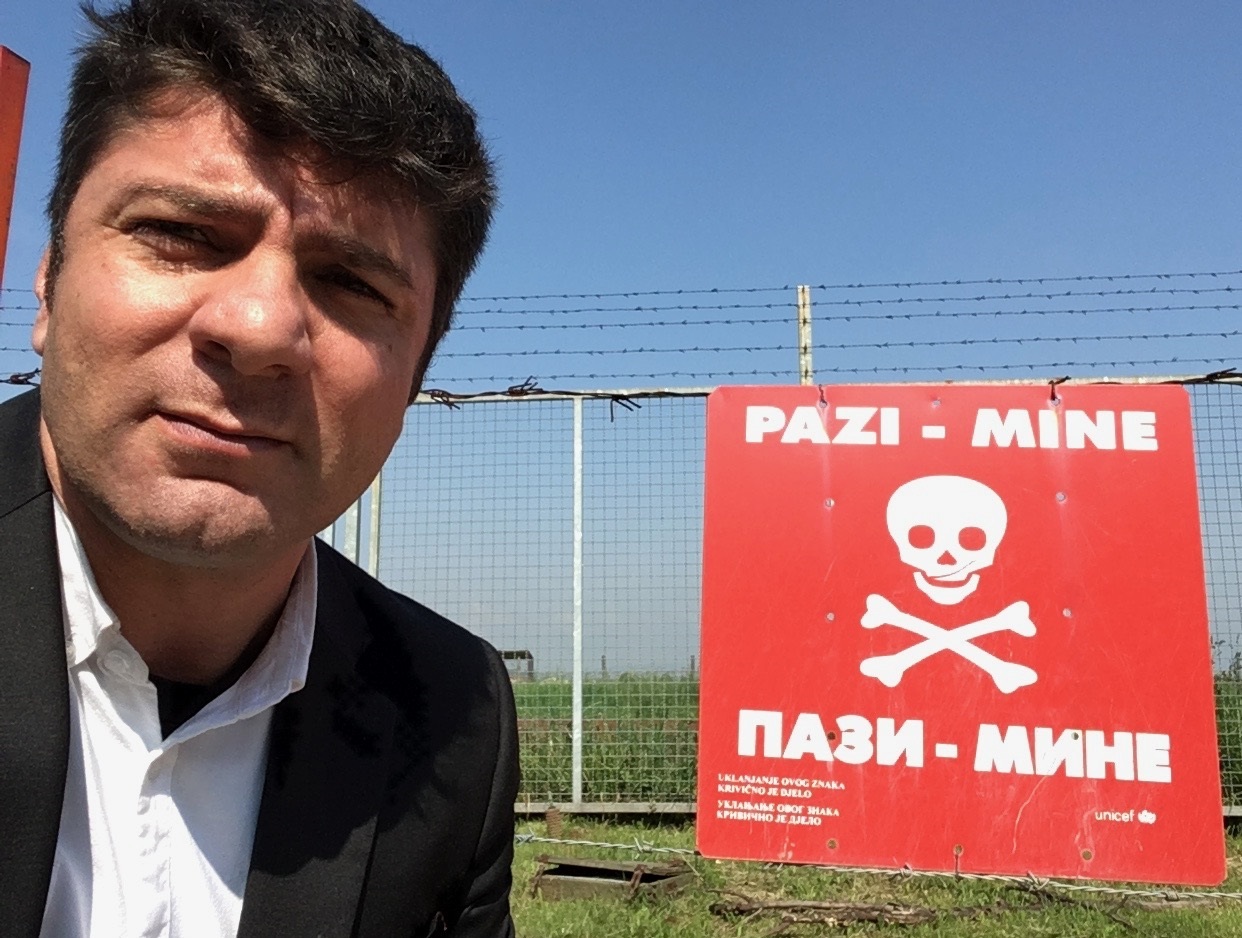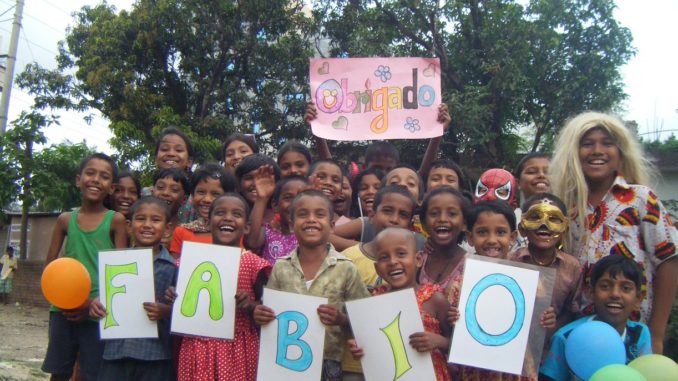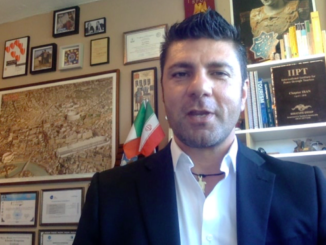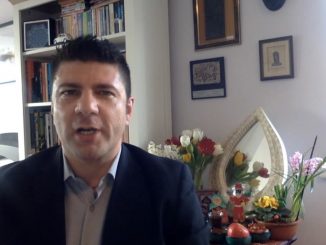What does it mean to be an ambassador of peace? I still remember when I was younger and used to watch with admiration people like Francesco Totti, David Beckham, Keira Knightley and, first of all, my main source of inspiration, the U2’s leader Bono, nominated for a Nobel Peace Prize in 2005. I admired them (and I still admire) for their successes as footballers, musicians or actors, but even more for their example of dedication and integrity that has led them to represent humanitarian organizations (such as UNICEF, for example) by becoming their ambassadors.  Recently, the International Institute for Peace through Tourism (IIPT) has awarded me the title of IIPT Ambassador-at-Large. Beyond happiness for such recognition, a thought immediately jumped in my head: “what now?” To represent an organization such as the IIPT, which promotes values such as those of intercultural dialogue, global understanding as “higher purpose of Tourism”, vehicle for establish contacts and peaceful relations among peoples worldwide, is a great honour but above all a great responsibility. What does an ambassador do, then? Well, my interpretation has matured over time. Without any doubt the easiest definitionion of this role would be: “to spread the IIPT message worldwide through encounters, meeting, projects, events, etc.”. But it is not an exhaustive definition. When Louis d’Amore, founder of IIPT (and person who I ‘studied’ and admired over the years and for a long time, before meeting him personally in London), appointed me with this role, he gave me something that I jokingly call “the superpower of the ambassador of peace”. What is this? Well, the opportunity and great challenge at the same time of meeting many different people worldwide to spread a positive idea and a message of hope and positiveness to humanity. The powerful and ultimate duty of encouraging and sensitizing people of all ages, status and cultural background about the importance of the participation of each one of us to build together a fair, equal and peaceful society for all of us. “Be the change you want to see in the world”, Ghandi said. This effort to bring together communities around this topic, to inspire and empower people, regardless of their age, status or work area, touching people’s lives and their hearts, leaving them a message of peace, is therefore a super power. In this context indeed, I still vividly remember the expressions and reactions of the people I met worldwide in the past years. I remember the enthusiasm and the will of “doing” met in the young people of the associations of Novi Sad, in post-conflict Serbia. I still have in mind the days spent in the Amazon rainforest with a Shuar community, where I found out, among other things, that they also have their own opinion on what is Community Tourism, the opportunities and the threats for them. I remember Leo, tourism operator I met in Ecuador during a conference organised by the Universidad Amazonica, with whom I have had the great opportunity of exchanging some ideas and possible solutions about the possible negative impact of an unsustainable tourism development on indigenous communities living in the jungle.
Recently, the International Institute for Peace through Tourism (IIPT) has awarded me the title of IIPT Ambassador-at-Large. Beyond happiness for such recognition, a thought immediately jumped in my head: “what now?” To represent an organization such as the IIPT, which promotes values such as those of intercultural dialogue, global understanding as “higher purpose of Tourism”, vehicle for establish contacts and peaceful relations among peoples worldwide, is a great honour but above all a great responsibility. What does an ambassador do, then? Well, my interpretation has matured over time. Without any doubt the easiest definitionion of this role would be: “to spread the IIPT message worldwide through encounters, meeting, projects, events, etc.”. But it is not an exhaustive definition. When Louis d’Amore, founder of IIPT (and person who I ‘studied’ and admired over the years and for a long time, before meeting him personally in London), appointed me with this role, he gave me something that I jokingly call “the superpower of the ambassador of peace”. What is this? Well, the opportunity and great challenge at the same time of meeting many different people worldwide to spread a positive idea and a message of hope and positiveness to humanity. The powerful and ultimate duty of encouraging and sensitizing people of all ages, status and cultural background about the importance of the participation of each one of us to build together a fair, equal and peaceful society for all of us. “Be the change you want to see in the world”, Ghandi said. This effort to bring together communities around this topic, to inspire and empower people, regardless of their age, status or work area, touching people’s lives and their hearts, leaving them a message of peace, is therefore a super power. In this context indeed, I still vividly remember the expressions and reactions of the people I met worldwide in the past years. I remember the enthusiasm and the will of “doing” met in the young people of the associations of Novi Sad, in post-conflict Serbia. I still have in mind the days spent in the Amazon rainforest with a Shuar community, where I found out, among other things, that they also have their own opinion on what is Community Tourism, the opportunities and the threats for them. I remember Leo, tourism operator I met in Ecuador during a conference organised by the Universidad Amazonica, with whom I have had the great opportunity of exchanging some ideas and possible solutions about the possible negative impact of an unsustainable tourism development on indigenous communities living in the jungle.  And I remember the people met in Brazil, far from the usual tourist destinations, thinking about new model of tourism development to promote social development and reduce extreme poverty. And I still feel touched when I think about the enthusiasm of the feedback by the students of the University Roma 3, in Rome, and the satisfaction of Barbara, director of the master in Language of Tourism and intercultural communication. Still, the amazing surprise of the city of Sarajevo, stunning city full of beauty, even though the scars of the tragic siege are still too visible. I was invited there to talk about tourism and human development to an audience made of hundreds of students, ministers and academics. And there I met wonderful people like Vedran, Miha, Miroslav, Merdzana, Balkans with the desire of create a great future thorugh tourism development for the Balkan region. Still, I keep on my desk the picture of the children of the Daka project, in Bagladesh. And how to forget the experience in Iran, where I founded together with Sassan, Moustafa and many stakeholders in tourism the IIPT Iran Chapter.
And I remember the people met in Brazil, far from the usual tourist destinations, thinking about new model of tourism development to promote social development and reduce extreme poverty. And I still feel touched when I think about the enthusiasm of the feedback by the students of the University Roma 3, in Rome, and the satisfaction of Barbara, director of the master in Language of Tourism and intercultural communication. Still, the amazing surprise of the city of Sarajevo, stunning city full of beauty, even though the scars of the tragic siege are still too visible. I was invited there to talk about tourism and human development to an audience made of hundreds of students, ministers and academics. And there I met wonderful people like Vedran, Miha, Miroslav, Merdzana, Balkans with the desire of create a great future thorugh tourism development for the Balkan region. Still, I keep on my desk the picture of the children of the Daka project, in Bagladesh. And how to forget the experience in Iran, where I founded together with Sassan, Moustafa and many stakeholders in tourism the IIPT Iran Chapter.
What did I learn from these experiences? It looks to me that people, young people but not only, are ready for a change, they are ready to believe in the new power of the individual engagent, they are ready to ‘return human’ to paraphrase and readjust the motto of a great person, Vittorio Arrigoni, Italian activist, journalist and writer assassinated in Gaza in 2011. But they need a signal, someone who shows the way, who in first person goes to present and promote the idea of a global peace and understanding possible also through the enhancement of cultural heritage and development of Tourism, understood as a vehicle for a peaceful encounter between peoples worldwide. The role of Ambassador of the IIPT has therefore made me rediscover myself as an “academictivist”, academic by profession and activist by vocation. The mission? To show that finally each and every one of us is endowed with the super power to change the world. This is – I think – the task of the IIPT ambassador of Peace through Tourism. It’s a big responsibility. It’s a great job. And I am just getting started.
Read more about Dr. Fabio Carbone here.



